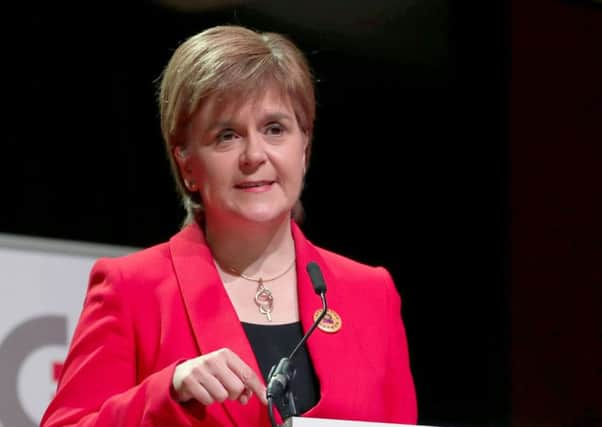Why Nicola Sturgeon should listen to the advice of an 11-year-old girl – Dr Catherine Calderwood


My daughter is studying Advanced Higher geography. She has to write a dissertation and has chosen ‘Has Scotland achieved gender equality?’ as her title. “How on earth is that geography?” she has been asked. “Geography is all about the world and how we interact with it – the environment, housing and communities, health, patterns of disease spread, movement of people and politics and because gender inequality is in all of these things – it’s geography,” she replies. “But no one looks at geography and thinks about gender,” I say. “Exactly mum, (she’s now exasperated) that’s why we haven’t achieved gender equality.”
Gender inequality is complex and harmful and affects us all, not just women and girls. Research shows us that we will not achieve our economic potential as a country unless we move much further towards gender equality in all aspects of life: the gender pay gap, the fact that women make up the majority of the part-time workforce, carer roles traditionally performed by women being under-valued and under-paid.
Advertisement
Hide AdAdvertisement
Hide AdThere is a lack of women in ‘top’ jobs in business and public life, as well as inequalities in healthcare for women, transport and housing designed without taking the differing needs and behaviour of men and women into account.
Gender inequality permeates every aspect of life and that’s why the First Minister created a National Advisory Council on Women and Girls (NACWG) to provide her with independent strategic advice.
Policies that perpetuate inequality
The NACWG advises the First Minister on actions for change and in 2018 we made 11 recommendations on attitudes and culture change in public life, work and learning systems.
The Scottish Government accepted all the recommendations and pledged to deliver seven in its 2019/20 Programme for Government. Throughout 2019 we explored policy coherence and gender equality and asked questions about whether policies work with or against each other.
We spoke to communities across Scotland, heard from our circle of over 1,000 members and hosted events with business, the women’s sector, BAME communities and young people. We also heard from disabled women and girls. Time after time they told us the same thing: that far from working with them, the systems and policies in place work against them to perpetuate inequalities.
At one of our youth circles, we asked what the future of policymaking should look like and an 11-year-old girl responded “it should be kind”. When we submitted our 2019 report to the First Minister last month this sentiment was at its core: an environment of kindness should be built into all policy-making.
We want to work towards building a more coherent, equitable, kind country, where we can all grow up loved and happy and reach our true potential, regardless of gender. We want to hear from you on how we, collectively, can make gender inequality a historical curiosity. Perhaps then we can answer the geography dissertation question posed by my daughter more positively.
I invite you to join our growing circle of 1000-plus organisations, individuals and supporters allied to our goal of #GenerationEqual and use your voice to help create a Scotland where we’re all equal. You can also join the conversation online @NACWGScot or on our website onescotland.org/NACWG.
Catherine Calderwood is Scotland’s Chief Medical Officer and she is grateful to Katherine May, Scottish Government Policy and Communications Officer, NACWG, for her contribution to this article.